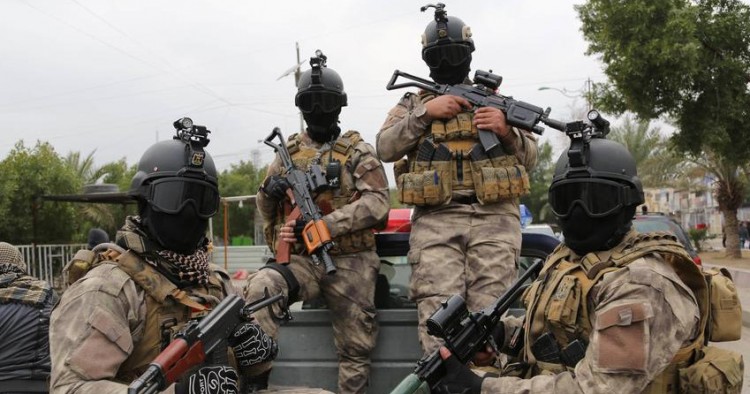The Iraqi Popular Mobilization Forces (P.M.F.) – an alliance of largely Shiite militia groups dominated by Iran – has called on the Baghdad government to expel the Turkish ambassador from Iraq, Fars News Agency reported. The call came after President Recep Tayyip Erdogan called the P.M.F. a “terrorist organization” and criticized Iran’s “expansionist” policies in the region. “These provocative remarks will further isolate Erdogan domestically and internationally, particularly because they increase tension in relations between Ankara and an important country in the region such as Iraq,” Karim al-Nuri, a senior P.M.F. commander, told Fars, an Iranian outlet affiliated with the Islamic Revolution Guards Corps (I.R.G.C.).
In an interview with Fars, Iraqi Prime Minister Haider al-Abadi's spokesman, Saad al-Hadithi, also denounced Erdogan’s comment as “an attack against Iraq’s sovereignty and interference in its internal affairs.” He added: “These forces are under the control of the commander-in-chief of Iraqi armed forces; they are not a paramilitary group as Erdogan has claimed.”
Comment: The prominent role of Iraqi Popular Mobilization Forces (P.M.F.), particularly in western Mosul, has long been a matter of concern for Iraqi Sunnis and some regional Sunni governments. The P.M.F. consists of militia forces largely from Shiite but also other Iraqi ethnic and religious groups, and the alliance has now been legally integrated into the Iraqi security forces. Iraqi Prime Minister Haider al-Abadi announced last week that he will increase government budget for the P.M.F. next month.
But Sunnis are worried that the most powerful units within the P.M.F. are controlled by the I.R.G.C. and advance Iran’s sectarian agenda. Some of these groups have engaged in acts of arbitrary killing, kidnapping, looting and rights abuses in the past. It is feared that they may engage in revenge killing against Sunni inhabitants of western Mosul once the Islamic State is ousted. Turkey has warned in the past that it will not remain silent if Shiite militiamen persecuted local residents of western Mosul after the ouster of the Islamic State.
The Middle East Institute (MEI) is an independent, non-partisan, non-for-profit, educational organization. It does not engage in advocacy and its scholars’ opinions are their own. MEI welcomes financial donations, but retains sole editorial control over its work and its publications reflect only the authors’ views. For a listing of MEI donors, please click here.













